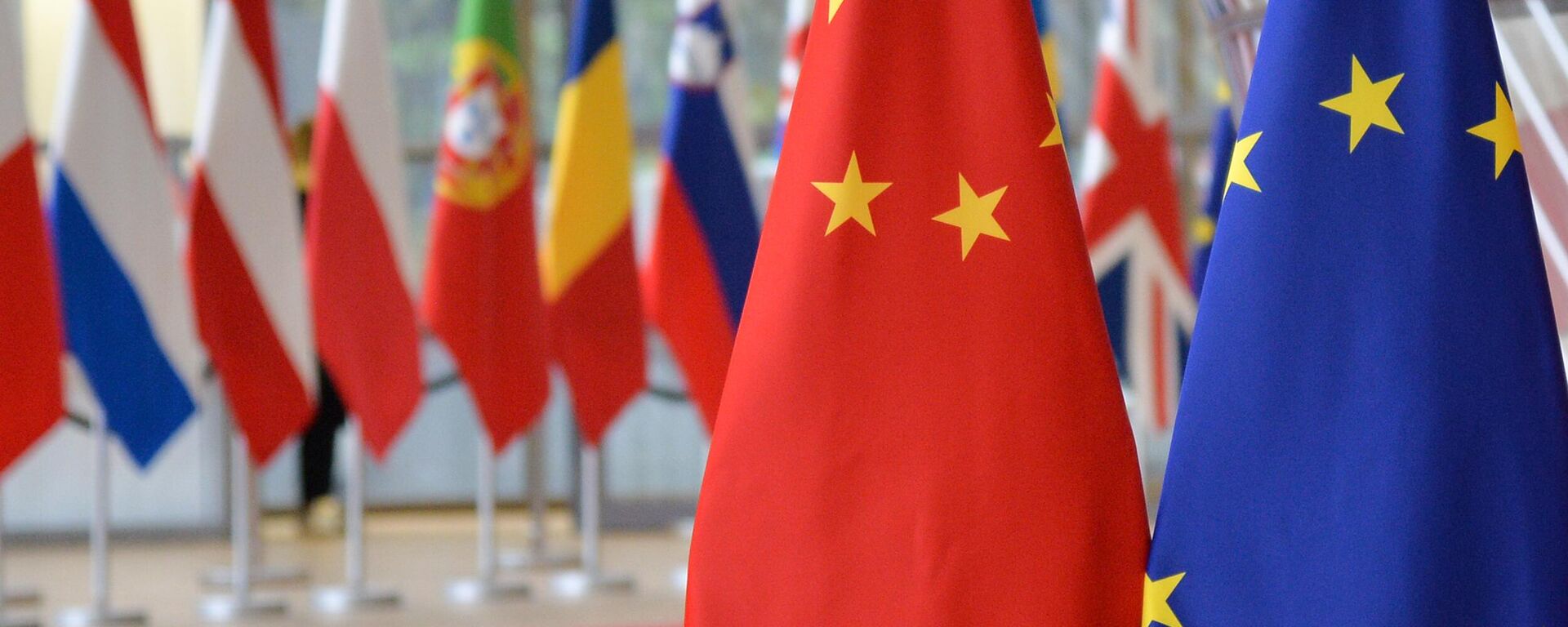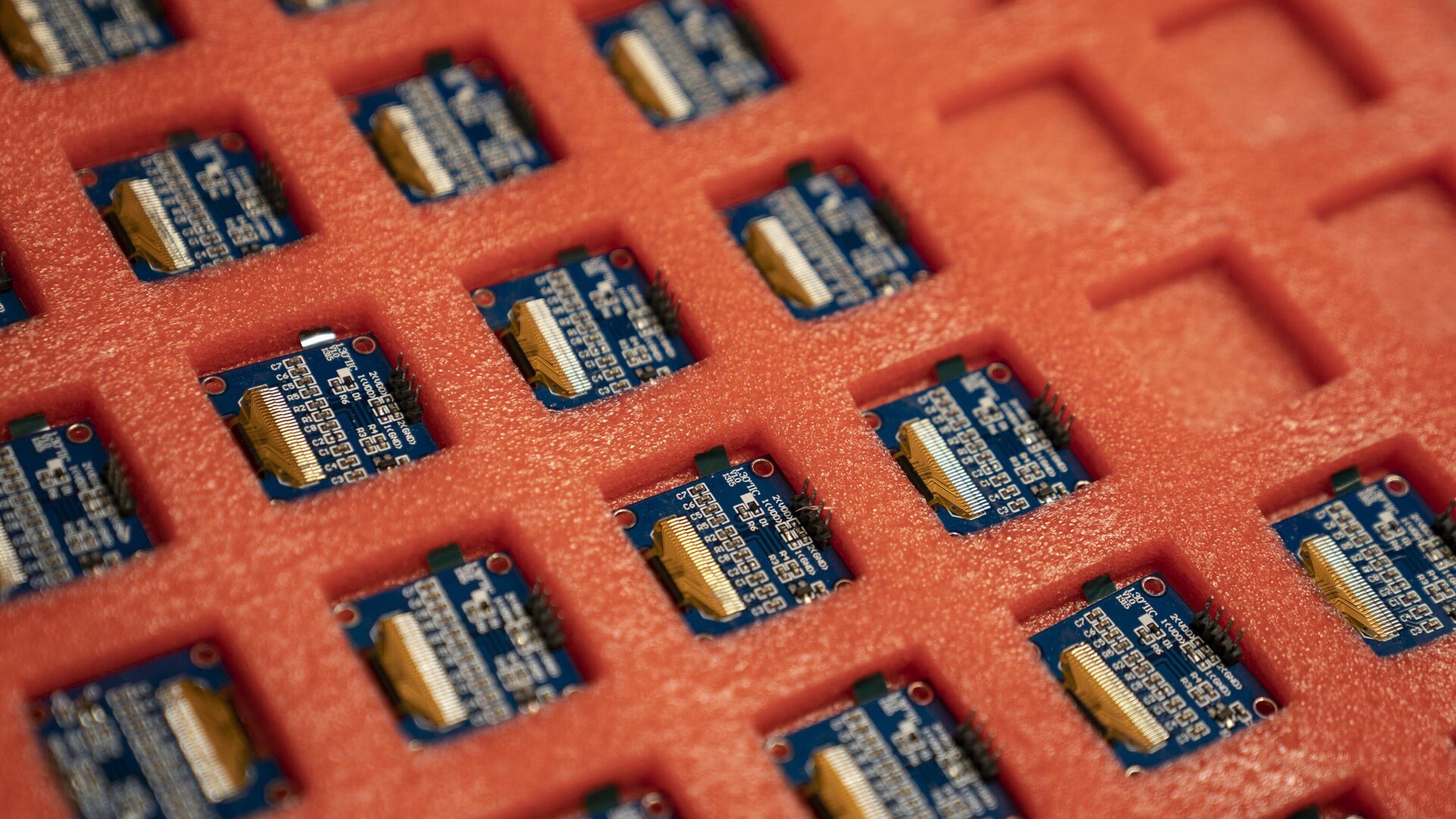https://sputnikglobe.com/20241110/us-demands-that-taiwans-tsmc-stop-supplying-ai-chips-to-china---reports-1120841625.html
US Demands That Taiwan's TSMC Stop Supplying AI Chips to China - Reports
US Demands That Taiwan's TSMC Stop Supplying AI Chips to China - Reports
Sputnik International
The United States has officially demanded that Taiwan Semiconductor Manufacturing Company (TSMC) stop supplying AI chips to China, Reuters reported citing a source familiar with the matter.
2024-11-10T09:31+0000
2024-11-10T09:31+0000
2024-11-10T10:21+0000
world
us
china
taiwan
taiwan semiconductor manufacturing company (tsmc)
us-china relations
us-china trade war
https://cdn1.img.sputnikglobe.com/img/07e6/0b/1d/1104824082_0:160:3073:1888_1920x0_80_0_0_4e1e00f69dd772d39e3ca471eab4dcc9.jpg
Washington demand that supplies to Chinese customers stop starting Monday, the agency added. The restrictions from the US Commerce Department, as outlined in the letter, will affect supplies of advanced 7-nanometer chips, as well as more advanced ones, for graphics processing units (GPUs) and AI accelerators to China. Earlier, Nikkei Asia reported citing sources that TSMC would suspend production of AI chips and high-performance computing for several Chinese companies due to increased measures to comply with US export controls. In October, Bloomberg reported that TSMC had stopped supplying semiconductors to a customer after they had been found in products from Chinese electronics manufacturer Huawei, which is contrary to US sanctions. In early October 2022, the United States banned 28 Chinese technology companies from accessing semiconductor chips manufactured using US technology worldwide. The ban applies not only to supplies from US companies, but also to any company in the world using American semiconductor technology.
https://sputnikglobe.com/20241030/china-refutes-eus-decision-to-impose-tariffs-on-evs-files-complaint-with-wto--1120724355.html
china
taiwan
Sputnik International
feedback@sputniknews.com
+74956456601
MIA „Rossiya Segodnya“
2024
Sputnik International
feedback@sputniknews.com
+74956456601
MIA „Rossiya Segodnya“
News
en_EN
Sputnik International
feedback@sputniknews.com
+74956456601
MIA „Rossiya Segodnya“
Sputnik International
feedback@sputniknews.com
+74956456601
MIA „Rossiya Segodnya“
us-china rivalry, us-china relations, us-china trade war, biden chips, ai us china, us ai, biden ai, us-china technological rivalry
us-china rivalry, us-china relations, us-china trade war, biden chips, ai us china, us ai, biden ai, us-china technological rivalry
US Demands That Taiwan's TSMC Stop Supplying AI Chips to China - Reports
09:31 GMT 10.11.2024 (Updated: 10:21 GMT 10.11.2024) MOSCOW (Sputnik) - The United States has officially demanded that Taiwan Semiconductor Manufacturing Company (TSMC) stop supplying AI chips to China, Reuters reported citing a source familiar with the matter.
Washington demand that supplies to Chinese customers stop starting Monday, the agency added.
The restrictions from the US Commerce Department, as outlined in the letter, will affect supplies of advanced 7-nanometer chips, as well as more advanced ones, for graphics processing units (GPUs) and AI accelerators to China.

30 October 2024, 06:39 GMT
Earlier, Nikkei Asia reported citing sources that TSMC would suspend production of AI chips and high-performance computing for several Chinese companies due to
increased measures to comply with US export controls.
In October, Bloomberg reported that TSMC had stopped supplying semiconductors to a customer after they had been found in products from Chinese electronics manufacturer Huawei, which is contrary to US sanctions.
In early October 2022, the United States
banned 28 Chinese technology companies from accessing semiconductor chips manufactured using US technology worldwide. The ban applies not only to supplies from US companies, but also to any company in the world using American semiconductor technology.



